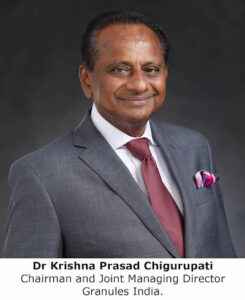- Budget 2024 should accelerate the pace of life-sciences innovation & R&D
- Low-cost financing schemes can enable private players to upgrade and add diagnostic infrastructure in tier 2 and 3 geographies
India
healthysoch
New Delhi, January 18, 2024:
“India’s pharmaceutical sector has rightfully earned the title ‘pharmacy of the world,’ thanks to its extensive production of generic medications. The industry is now poised for a transformative leap – evolving into a global hub for innovative products and sustainable pharmaceutical manufacturing.
Sudarshan Jain, Secretary General, Indian Pharmaceutical Alliance:
 India has played a pivotal role in shaping global health outcomes by providing affordable quality-assured medicines. Today, the Indian pharmaceutical industry is at the cusp of change. The Indian pharma sector aims to achieve USD 120–130 by 2030 and USD 400-450 by 2047. To achieve this vision, the Union Budget 2024-25 should accelerate the pace of innovation and R&D. The announcement of the Promotion of Research & Innovation Program (PRIP) Scheme in 2023 was a positive step to spur innovation. Given the high risk, long gestation period and low success rate in research, there is a need for continuous investments. Therefore, the budget 2024-25 should outline conducive policies that provide benefits in terms of both direct and indirect taxes and also facilitate ease of doing business for the pharmacos.
India has played a pivotal role in shaping global health outcomes by providing affordable quality-assured medicines. Today, the Indian pharmaceutical industry is at the cusp of change. The Indian pharma sector aims to achieve USD 120–130 by 2030 and USD 400-450 by 2047. To achieve this vision, the Union Budget 2024-25 should accelerate the pace of innovation and R&D. The announcement of the Promotion of Research & Innovation Program (PRIP) Scheme in 2023 was a positive step to spur innovation. Given the high risk, long gestation period and low success rate in research, there is a need for continuous investments. Therefore, the budget 2024-25 should outline conducive policies that provide benefits in terms of both direct and indirect taxes and also facilitate ease of doing business for the pharmacos.
The year 2024 is likely to witness the initial results of the various initiatives to augment India as a reliable supplier of medicines. Policy stability and continuity will be fundamental to propel the sector’s growth. India is poised to move to “Discover and Make in India” from “Make in India”, making India the custodian of healthcare of the world.
Ameera Shah, Promoter and Managing Director, Metropolis Healthcare:


Dr Ashutosh Raghuvanshi, MD and CEO, Fortis Healthcare & President, NATHEALTH:


Dr Krishna Prasad Chigurupati on India’s Pharmaceutical Industry Transformation:


To realize this vision, the Indian government needs to implement focused strategies. These include creating innovation zones offering incentives and infrastructural support, encouraging public-private partnerships to combine expertise and resources, and boosting funding for advanced drug research and development. Streamlining regulatory pathways to expedite approvals for novel treatments and investing in educational initiatives to develop a workforce adept in pharmaceutical innovation are also key. These initiatives are expected to usher in a new age of Indian pharmaceutical leadership, characterized by groundbreaking R&D.
India’s potential in sustainable manufacturing is immense, set to substantially contribute to the fight against climate change. With the manufacturing sector projected to add 800-900 billion to the GDP in the next 4-5 years, India is on the brink of revolutionizing manufacturing, integrating sustainability with cutting-edge science and technology. This approach is critical in addressing the global climate crisis.
Embracing ambitious renewable energy and green hydrogen projects, India is gearing up to be a leader in sustainable product manufacturing. This demonstrates the country’s commitment to sustainable development, economic growth, energy independence, and leading the charge in global decarbonization. Innovations in renewable energy, Electrolyzer, green molecules, biobased manufacturing, and advancements in Carbon Capture, Utilization, and Storage (CCUS) are just a few areas where we need to accelerate progress. With the right policies and initiatives, India can transform these potentials into reality, securing its position as a global hub for sustainable manufacturing.”
Achal Saran Pande, Partner at Vector Consulting Group:


healthysoch








awesome